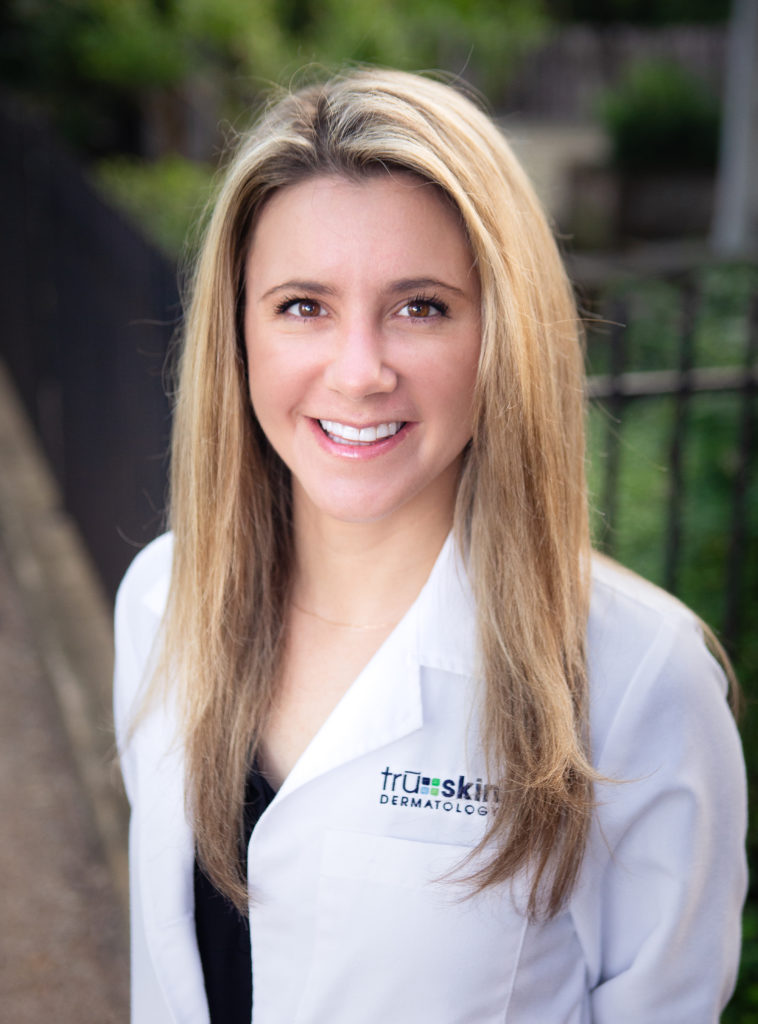Acne is one of the most common skin conditions in the United States. Tru-Skin shares how to prevent and treat it.
Sponsored Content, By Bethany Hughes

Acne is one of the most common skin conditions in the United States. Acne most commonly affects teenagers and young adults, however it can affect people of all ages. Even mild acne should be treated early to prevent permanent scarring and the darker discoloration that lingers post breakout called post-inflammatory hyperpigmentation. Studies show that acne can lower self-esteem and can cause depression.
There are different types of acne including: comedonal acne (i.e. black- heads and whiteheads), papules, pustules, cysts and nodules. You can develop acne anywhere on the body, although it is usually present on the face, chest and back. It is estimated that 40 to 50 million Americans will suffer with acne at some point in their lives. Luckily, there are many effective treatments available to treat this frustrating condition.
Acne occurs when a pore becomes clogged. Our skin cells are constantly turning over and producing new skin cells. This process usually takes between 28 to 40 days. In healthy skin, dead skin cells rise to the surface of the pore and shed. Excess oil, also known as sebum, can accumulate in the pore and mix with dead skin cells. Once trapped within the pore, acne can form. A bacterium called P. acnes can also grow and thrive in thisenvironment causing inflammation.
Many effective topical and oral treatments are available that can clarify the skin and boost self-esteem. Patients with mild acne are typically treated with topical medications that address both the inflammatory and bacterial components of acne. Several acne topicals contain a retinoid which promotes cell turn over and clarification of the pores. Retinoids also help address post-inflammatory hyperpigmentation, which is the darker discoloration that lingers after a break-out clears. Topical antibiotics and acids are also commonly used for acne.
Moderate and severe acne typically requires both a topical and oral medication. Most oral antibiotics prescribed for acne address both the bacterial and inflammatory component of acne. Isotretinoin, most known as Accutane, is the only medication available that puts the glands in chronic remission. This means that after a course of isotretinoin, acne usually never goes back to baseline.
It is used commonly and is usually very safe if monitored by a dermatology provider. Providers at Tru-Skin Dermatology will cater your skin-care regimen to clear your skin quickly and effectively.
Tru-Skin offers many in-office treatments to clear acne. A peel series can clarify skin, as well as treat post-inflammatory hyperpigmentation. Our Bellus Medical SkinPen helps address acne scarring. It also reduces fine lines and wrinkles and improves skin tone and texture. There is no better fulfillment as a provider than helping to achieve our patients’ skincare goals.
Tru-Skin Dermatology accepts most medical insurances. Call 512.451.0139 or visit tru-skin.com to schedule your appointment. You can also communicate with us by text at 512.359.3163.

